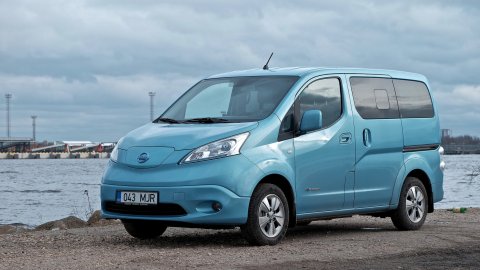‘Range Anxiety’ Hurting Adoption of Electric Cars

Growing anxieties over rising gas prices and environmental concerns have left drivers looking for more efficient means of personal transportation. Manufacturers of battery electric vehicles (or BEVs) have responded by giving the people what they want, increasing output. But some have been slow to put their money down. A recent study has been looking into why, finding that fear of becoming stranded — something researchers are calling “range anxiety” — has been halting acceptance of these fuel-efficient cars.
The study was published in the scientific journal Human Factors. Nadine Rauh, one of the co-authors of the study from the Department of Cognitive and Engineering Psychology at Germany’s Technische Universität Chemnitz, says that consumer mentality is a big part of the conversation for manufacturers of BEVs:
“Range anxiety is a popular topic in the field of electric vehicles, and is frequently named as a key barrier for widespread adoption of BEVs.”
Through the team’s research, they hope to find ways to create wider acceptance and calm some of the fears people may have toward these vehicles.
“We strongly believe that a better understanding of the phenomenon of range anxiety can help us to find ways of enhancing user experience in BEV driving, thereby increasing acceptance of this type of alternative vehicle.”
The researchers gathered a small group of people (only 24) for their study. The participants level of experience with BEVs was split — some were experienced while others were experiencing their first test-drive. Both groups were instructed to drive down county roads, through remote villages, and on the Autobahn. As a way to inhibit their range stress, the researchers told both groups the battery was faulty, so the BEV was not fully charged.
The two groups reacted as expected with the experienced BEV drivers feeling significantly more confident in the vehicle’s range capabilities than the inexperienced drivers. Indeed, adopting any new kind of technology can be stress-inducing. Gas-powered cars are familiar — we know what to expect (generally). So, it’s understandable that those unfamiliar with this technology aren’t confident in their abilities to handle the range of possible “what if” scenarios. They don’t understand how far a car can go on half or even a full charge. There’s no day-to-day measurement they can apply.
Thomas Franke, one of the authors, is confident that people will be able to adapt, given time:
“Drivers who are new to BEVs can experience a lot of stress, but as time goes by, they will become more confident in both the BEV’s range and in their own abilities to manage any situations that may arise.”
The researchers plan on expanding their test group in future studies to find a way to help increase widespread adoption and decrease range anxieties.
Read more at EurekAlert!.
Photo Credit: Kārlis Dambrāns/Flickr





